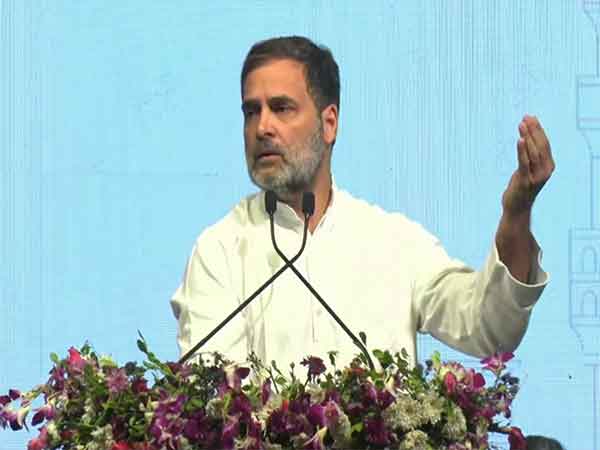Union Ministers Hardeep Singh Puri, Rajeev Chandrasekhar celebrate India's tech growth at Vishesh Sampark Abhiyan
May 20, 2024

New Delhi [India], May 20 : Union Minister Hardeep Singh Puri hosted a 'Vishesh Sampark Abhiyan' event at his residence on Monday, bringing together some of the nation's top IT professionals, innovators, startup leaders, and intellectuals.
The event, which highlighted India's remarkable advancements in information technology and digital innovation under the leadership of Prime Minister Narendra Modi, also saw the participation of Union Minister and BJP leader Rajeev Chandrasekhar.
In a post on X (formerly Twitter), Hardeep Singh Puri expressed his enthusiasm for the gathering.
He posted, "Delighted to join my friend & colleague Sh @Rajeev_GoI Ji to welcome some of the country's top IT Professionals, innovators, startup leaders & intellectuals at an interaction on India's exemplary advancement in the information technology & digital arena under the visionary leadership of PM @narendramodi Ji at a #VisheshSampark event at my residence today...."
https://x.com/HardeepSPuri/status/1792561587317874707
Puri emphasized the transformative impact of the past decade, particularly noting how young professionals, once without business backgrounds, are now leading multimillion-dollar enterprises and driving employment across the country.
Speaking at the event, Puri reflected on the sweeping changes in India's business landscape over the past decade.
Highlighting the economic reforms under the Modi administration, Puri pointed to the reduction in corporate tax rates and said, "Ten years ago, during the previous government's regime, the only criteria required to become successful was connection...but the kind of success stories we have today...Corporate tax has been cut to 15% from 25% for new manufacturing companies, and existing companies. Corporate tax was reduced from 30 to 22. 41,000 necessary compliances reduced or scrapped. 3,000 plus compliances decriminalized. 1,500 archaic laws replaced."
He added, "I could go on and on, but I am going to skip that part. And I come to something that continues to fascinate me because these are the real success stories. How many unicorns did we have in 2015? Four. In 2018, eight. In 2019, nine. In 2020 10 new unicorns, a whopping 42 new unicorns in 2021. In 2022, we had 21 new unicorns. As of May, 2024 is 113. And India ranks third in the number of unicorns, second in total number of startups and first in new startups. This is the new company."
Echoing Puri's sentiments, Rajeev Chandrasekhar underscored the transformative decade India has experienced.
Chandrasekhar said, "I want to speak to you about transformation and what the last ten years have meant for our country. I have been a few decades around the block. I've spent about three and a half decades in tech, and I have been through many of the ups and downs and the cycles of the tech ecosystem in India for several years and decades."
He described the period as the most exciting and innovative for those involved in the tech sector.
He stated, "I can certainly today tell with confidence, that we are at a point in the history of our nation that has never been like this ever before. This is certainly the most exciting time for anybody in tech, anybody who is even a remote stakeholder in tech, an innovator. This is certainly the most innovative and exciting time for all of us, and I will certainly try and lay out why that is... The last ten years have seen a significant transformation in the governments of a country that once was described as a dysfunctional democracy."
Chandrasekhar highlighted the significant strides made in governance, economy, national security, and infrastructure over the past ten years and said, "We have proved in the last ten years, Prime Minister Narendra Modi has shown emphatically that we can be a democracy and we can be a very performing economy at the same time. So governance, economy, national security, infrastructure, you've seen it, you've heard about it. The last ten years have seen an expansion of our footprint in the digital economy like never before."
He emphasized India's expanded footprint in the global digital economy, with Indian innovation making its mark in areas such as AI, semiconductors, electronics, microelectronics, high performance computing, the future of the Internet, and next-generation telecom.
He affirmed, "I can safely say today, and I'm sure many of you would agree, that the Indian flag is today planted on almost every segment of the digital innovation economy that today represents innovation and technology around the world, whether it is AI, whether it is semiconductors, whether it is electronics, whether it is microelectronics, whether it is a high performance, whether it is the future of the Internet, whether it's telecom and the next generation."



















